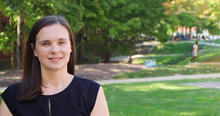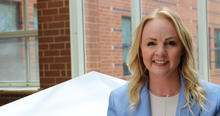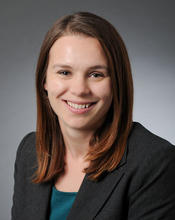- November 2, 2022
It’s 9 am. Do you know where your team members are? Before Covid, the answer was simple: They were – or were expected to be – in the office. The pandemic erased that certainty and accelerated the pace toward work-place flexibility. As we move forward in our post-covid work environment, employees are strongly indicating their preference for flexibility and self-determination regarding their working environment. A portion of the workforce will desire to stay at home with high flexibility, whereas others will return to the office by choice.
- September 20, 2022
Selling is inseparable from relationship management. In the past, the one-to-one "human touch" of a salesperson compensated for the standardized nature of their wares. However, today's sales environment tends towards customized solutions and co-creation with the client, especially in the B2B space. In many cases, these trends have greatly increased the network of stakeholders whom salespeople are obliged to keep happy. Research shows that B2B customers benefit from being more involved in the process, but what about the sales force? Does their increased interpersonal burden translate to higher risk of burnout? George Mason University School of Business Marketing Area Chair Jessica Hoppner's recently published paper in Industrial Marketing Management, co-authored by Paul Mills of Cleveland State University and David A. Griffith of Texas A&M University, finds some surprising answers.
- May 2, 2022
In the earliest stage of innovation, creative proposals are judged according to their perceived novelty and usefulness. Sharaya Jones, assistant professor of marketing at Mason, has a simple yet counterintuitive rule for would-be innovators hawking their ideas: More is more. Her recent paper in Marketing Science, co-authored by Laura J. Kornish of University of Colorado Boulder, pits verbose and detailed idea descriptions against terse ones.
- April 7, 2022
Turbulent times are challenging for decision-makers in business. This pervasive condition scholars call economic policy uncertainty (EPU) can turn a wise move into a costly one virtually overnight and is known to weigh on firm innovation, investments and value. When confronting EPU, what’s a firm to do? Saurabh Mishra, professor and area chair of marketing at Mason, and co-authors explores that question.
- March 24, 2022
A paper co-authored by Jessica Hoppner, associate marketing professor at Mason, has been named a finalist for the American Marketing Association’s prestigious Weitz-Winer-O’Dell Award.
- February 15, 2022
Research by Gautham Vadakkepatt, associate professor of marketing, finds strong indications that gender equality in advertising and actual outcomes for women are on parallel rising trajectories, in the markets that need it most.
- November 16, 2021
Tarun Kushwaha, a professor of marketing at the George Mason University School of Business, recently ran an experiment that pitted the brainpower of actual human executives against trained algorithms.
- November 5, 2020
The Center for Retail Transformation and the Center for Real Estate Entrepreneurship at George Mason University School of Business have entered into a research collaboration with Fairfax County on the Relay project in Merrifield, Virginia. Relay is an autonomous (self-driving) electric public transportation shuttle that will circulate between the Mosaic District and the Dunn Loring Metrorail Station.
- November 4, 2019
Brett Josephson, assistant professor of marketing, has studied government contracting since he was a PhD student. In recently published research, Josephson—together with Ju-Yeon Lee, assistant professor of marketing at Iowa State University, and Babu John Mariadoss and Jean Lynn Johnson, associate professors of marketing at Washington State University—recommended that companies focus on specialization.
- May 18, 2021
Years spent engaging with consumers in the business world made School of Business Marketing faculty Niki Vlastara realize that how sustainability concepts and proposals were marketed significantly influenced how successful they became.










